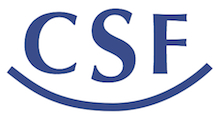Financial Help for Those with Reduced Mobility Living in France
Not everyone is aware that people aged 60 living in France and who have a disability or need assistance due to reduced mobility, may be entitled to receive financial assistance under the French APA scheme.
The APA (L'Allocation personnalisée à l'autonomie- Personal autonomy allowance) is supported by the French Government and administered via the conseil départemental. The purpose of the APA scheme is to allow qualifying recipients to continue living in their home.
In summary, the purpose of the APA is to provide assistance to people aged 60 and over, who need help with the essential activities of daily living. For example, support with getting in/out of bed, help with washing and dressing or perhaps assistance with preparing and cooking meals. Their remit also covers those persons who need daily monitoring visits to ensure they are not experiencing any difficulties.
Examples of what the APA will pay for:
Home help
Equipment such as the installation of personal alarms to summon help
Supplies for hygiene
Meal deliveries
Cost of carrying out essential changes to the home such as grab handles in bathroom
Respite care
Transportation expenses
It will also part pay for approved nursing homes (accommodation facility for dependent elderly people).
Perhaps it is important to note at this point that in the event the conseil départemental is informed an applicant is now able to live independent of assistance, the département cannot seek reimbursement of any the monies previously paid to the beneficiary. It is also important to note that monies paid under the APA scheme are not subject to any form of reclaim from a person’s estate once paid.
Like all schemes, there are qualification requirements. To qualify under the APA scheme, the claimant must be:
- Aged 60 or over,
- Resident (covered by the French Health scheme)
- Suffering from reduced mobility as evaluated under the GIR 1, 2, 3 or 4 by a team of professionals.
What is the GIR?
GIR (Groupe Iso-Ressources) is a classification used to measure the degree of loss of autonomy of the person using a national standard evaluation grid (AGGIR) to ensure consistency across the country.
Another acronym one will come across is AGGIR. This is the name given to the whole process of which the GIR forms part of it. AGGIR (Autonomy Gérontologique Groupe Iso-Resources) is a countrywide system/scheme used to assess the degree of independence/loss of self-sufficiency of people, mainly elderly, in France.
Qualification
As previously stated, to qualify under the scheme, a claimant must be:
- Aged 60 or over,
- Resident (covered by the French Health scheme)
- Suffering from reduced mobility as evaluated under the GIR 1, 2, 3 or 4 by a team of professionals.
How to apply for APA home?
The home APA application is managed by the conseil départemental. Applications can be made direct or via your local municipality. In the Hérault, the contact details of the consul départemental are as follows:
Address: Conseil départemental, Hôtel du département, 1000, rue d'Alcool, 34087 Montpellier Cedex 4
Téléphone: +33 4 67 67 67 67 Fax: +33 4 67 67 81 66.
Website: le site internet du Conseil départemental - Hérault
To access the APA page on their website, click here
One can find all the information on www.pour-les-personnes-agees.gouv.fr. The national portal for the independence of the elderly and support for their relatives is provided by the Ministry of Social Affairs, Health and Women's Rights and the National Solidarity Fund for Autonomy.
Financing the APA Scheme
Since 2002, benefits for the elderly and others requiring care or assistance, have been provided through the APA system (Allocation personnalisée à l'autonomie).
Finance for these benefits originate from local councils and the newly created agency CNSA (Caisse nationale de solidarité pour l'autonomie). The CNSA is not directly financed from the tax system. Its funds come from three main sources:
- In France, all employees work a day for which they are not paid. The monies that they would have been paid are given to CNSA.
- Monies from a 0.3 percent tax on employers
- Monies set aside within the existing healthcare budgeting system to support those requiring assistance.

Cancer Support France, (CSF) Languedoc & Aude have complied the attached documents, which they are happy for us to place on the church website.
Cancer Support France – Languedoc is a registered French association. CSF are there to help, by providing linguistic, practical & emotional support in English, for anyone affected by cancer as a patient, family member or carer.
Cancer Support France, (CSF) Languedoc & Aude are affiliated to Cancer Support France. CSF is a national French organisation with groups in many regions around France. A link to their website is available by clicking here

|
TELE ASSISTANCE-CSF Doc Updated.pdf Size : 105.419 Kb Type : pdf |
